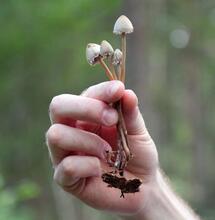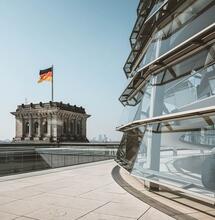Dutch Court Refuses to Punish Illegal Cannabis Growers

Criticized gov't. policy that criminalizes pot production while allowing its sale in coffee shops
Criticized gov't. policy that criminalizes pot production while allowing its sale in coffee shops
SOURCE: Agence France-Presse
A Dutch court on Thursday refused to punish two cannabis growers, criticizing a government policy that criminalizes the drug's production while allowing its sale in coffee shops.
"The court finds the suspects guilty," the court in northern city Groningen said in its judgment, but "no punishment will be applied".
Owners of the Netherlands' hundreds of coffee shops, where you can buy up to five grammes (around a sixth of an ounce) of marijuana over the counter, frequently criticism what they say is hypocritical legislation that forces them to buy the drug wholesale from criminals.
"Given that the sale of soft drugs in coffee shops is tolerated, this means that these coffee shops must supply themselves and so cultivation must be done to satisfy these demands," the Groningen court said.
"The law does not state how this supply should be done," it said.
Justice Minister Ivo Opstelten said he was "surprised" at the ruling, which the public prosecution service said it would examine.
Although cannabis is technically still illegal in the Netherlands, the country in 1976 decriminalized possession of small amounts and it is widely available.
However, growing and selling any quantity over five grams is illegal, meaning the cultivation and sale of large amounts of cannabis is in the hands of organized crime.
Between 2009 and 2014, police seized more than 2,000 cannabis plants from the Groningen growers, but judges found that the cultivation was done in the spirit of the law on soft drugs, namely "in the interests of public health and so as not to disturb public order".
The Groningen growers were always open with the police about their activities, always declared their cannabis income to the government and paid tax on it and were not claiming any benefits, the judges said.
They did not use any chemicals in their cultivation, which was carried out in plantations that posed no fire risk and using paid-for electricity, they found.
The drugs were sold to coffee shops and did not enter the criminal circuit.
Defense lawyer Sidney Smeets said the ruling was "unique".
"It's not every day that a judge says 'Minister Opstelten, you can stick your policy'."
Earlier this year, eight of the Netherlands' biggest cities, including Amsterdam and Rotterdam, called for the government to decriminalize cannabis cultivation and its wholesale.
The government reaps hundreds of thousands of euros a year in taxes from coffee shops, but the finance ministry declines to say just how much.
Uruguay last year became the first country to oversee the production and sale of marijuana, while US states Colorado and Washington in January legalised recreational cannabis shops.



